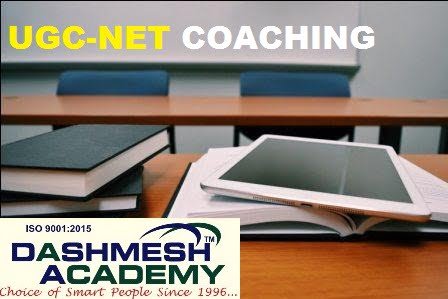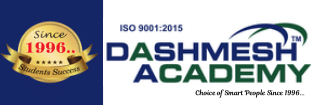
UGC-NET
The National Eligibility Test (UGC-NET) is a test to determine eligibility for college and university level lectureship . Moreover it is also for award of Junior Research Fellowship (JRF) for Indian nationals. Meanwhile It aims to ensure minimum standards for the entrants in teaching professions as well as research. The test is being conducted by the National Testing Agency (NTA) in Computer Based Test .
official link : https://ugcnet.nta.nic.in/
WHO IS THIS COURSE FOR
Students can take exam so to be eligible for –
Either lecturer or assistant/associate professorship
junior research fellowship
both lecturer and research fellowship
QUESTION PAPER PATTERN
As per the revised scheme, the test will chiefly consist of two papers as below:.
Paper Marks Number of Question Duration
I 100 50 questions. All are compulsory 1 Hour
II 200 100 questions. All are compulsory 2 Hours
Paper-I shall consist of markedly 50 objective type compulsory questions each carrying 2 marks. The questions which will be of general nature , particularly intended to assess the teaching/research aptitude of the candidate. It will specifically be designed to test reasoning ability, comprehension, divergent thinking and general awareness of the candidate.
Paper-II has 100 objective type compulsory questions each carrying 2 marks .However this paper is based on the subject selected by the candidate.
Career options after qualifying UGC-NET
Once students pass the exam, they become eligible to apply for lecturer positions when universities and colleges announce vacancies. Undeniably your selection will depend on your interview.
Moreover the candidates who have interest in research program may also pursue junior research fellowship from the coordinating institutes of net. The selection procedure of students for award of JRF will particularly depend on the student’s performance in test. However, the candidates qualifying assistant professor exclusively will not be considered for the award of JRF.
SYLLABUS FOR FIRST PAPER
1.Teaching Aptitude
- Nature, objectives, characteristics and basic requirements; Learner’s characteristics; Factors affecting teaching; Methods of teaching; Teaching aids; Evaluation systems.
II. Research Aptitude
Meaning, characteristics and types; Steps of research; Methods of research; Research Ethics; Paper, article, workshop, seminar, conference and symposium; Thesis writing: its characteristics and format.
III. Reading Comprehension
In fact, A passage to be set with questions to be answered.
IV. Communication
Nature, characteristics, types, barriers and effective classroom communication.
V. Reasoning (Including Mathematical)
Most importantly, number series; letter series; codes; > Relationships; classification.
VI. Logical Reasoning
Understanding the structure of arguments; Evaluating and distinguishing deductive and inductive reasoning; Verbal analogies : Word analogy — Applied analogy; Verbal classification. Reasoning Logical Diagrams : Simple diagrammatic relationship, multi diagrammatic relationship; Venn diagram; Analytical Reasoning.
VII. Data Interpretation
Sources, acquisition and interpretation of data . ‘Both Quantitative and qualitative data; Graphical representation as well as mapping of data.
VIII. Information and Communicating Technology (ICT)
ICT : meaning, advantages, disadvantages and uses; General abbreviations and terminology; Basics of internet & also e-mailing.IX. People and Environment: Examining the interaction between people and the environment, including sources of pollution, the impact of pollutants on human life, and the exploitation of natural and energy resources. Additionally, understanding natural hazards and their mitigation strategies.
X. Higher Education System: Delving into the governance, polity, and administration of the higher education sector. Must be remembered This includes exploring the structure of institutions for higher learning and research in India, formal and distance education models, professional/technical versus general education, and the incorporation of value education.Furthermore analyzing governance structures, the concept of institutions, and their intricate interactions within this system.
Sample papers to get sample papers click https://dashmeshacademy.com/sample-papers/
ADVANTAGES OF UGC-NET COACHING AT DASHMESH ACADEMY
Exam Mastery: Delve into exam formats comprehensively, empowering confident preparation.
Exam Score Comprehension: Hone skills to interpret and optimize exam scores, fostering enhanced performance.
Seasoned Faculty: Leverage the expertise of dedicated, experienced instructors crucial for your success.
Personalized Attention: Access focused, individualized guidance, pivotal for amplified learning outcomes.
Computer Fundamentals: Explore essential computer basics and critical abbreviations, laying a strong foundation.
Civics & Constitutional Essentials: Attain key knowledge in civics and constitution, integral for exam readiness.
Tailored Learning: Embrace customized learning plans tailored precisely to your unique needs and aspirations.
Accelerated Success: Propel toward achievement at an accelerated pace with expertly structured guidance.
Time Management Tactics: Learn effective strategies for optimal time utilization during exams.
Enhanced Reading Skills: Develop and refine your reading capabilities for improved comprehension.
Identify & Overcome Weaknesses: Pinpoint and address areas for improvement to ensure comprehensive preparation.

